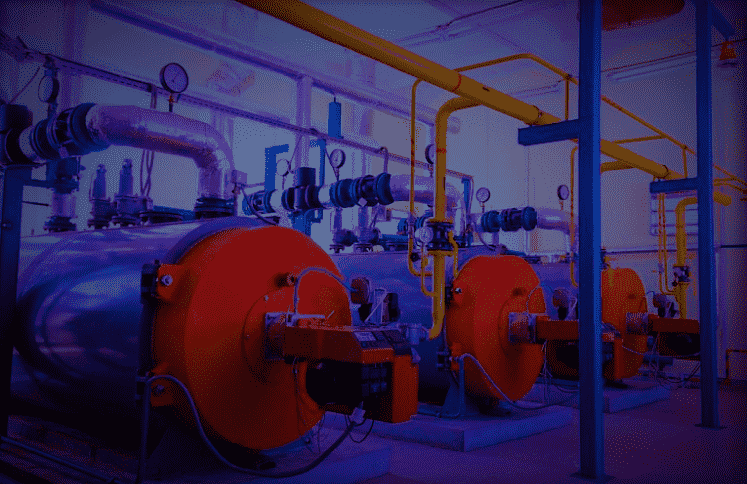Contents
- 1 Introduction to Boiler Steel
- 2 Properties and Characteristics of Boiler Steel
- 3 Types of Boiler Steel
- 4 Common Uses of Boiler Steel in Industrial Applications
- 5 Factors to Consider When Choosing Boiler Steel
- 6 How to Maintain and Extend the Lifespan of Boiler Steel
- 7 Conclusion: Why boiler steel is essential for various industries?
Introduction to Boiler Steel
Welcome to the world of boiler steel, where strength and durability meet industrial innovation! If you’ve ever wondered what makes those powerful machines churn out heat day in and day out, look no further than the remarkable properties of boiler steel. Whether generating electricity or heating water for various applications, boiler steel is critical in countless industries.
In this blog post, we’ll dive into the fascinating realm of boiler steel, exploring its properties, types, common uses in industrial applications, factors to consider when choosing the suitable material, tips for maintenance and longevity, and why it remains an essential component across diverse sectors. So buckle up and get ready to uncover everything you need about this incredible material that keeps our industries running smoothly!
Properties and Characteristics of Boiler Steel
Boiler steel is a carbon steel designed to withstand high temperatures and pressure in boiler systems. It possesses several properties and characteristics that make it ideal for such demanding applications.
One of the critical properties of boiler steel is its excellent strength, which allows it to withstand the extreme pressures generated inside boilers. This strength is achieved through careful alloying and heat treatment processes during manufacturing.
Another essential characteristic of boiler steel is its ability to resist corrosion and oxidation at high temperatures. This is crucial as boilers often operate under harsh conditions with exposure to steam, water, and other corrosive substances. Adding certain alloying elements like chromium, molybdenum, and nickel enhances the corrosion resistance of boiler steel.
Furthermore, boiler steel exhibits good weldability, allowing for easy fabrication and repair when necessary. This ensures that boilers can be constructed efficiently while maintaining their structural integrity over time.
In addition to these properties, boiler steel also offers excellent thermal conductivity. This means it can efficiently transfer heat from the combustion process to the working fluid within the boiler system.
The unique combination of strength, corrosion resistance, weldability, and thermal conductivity makes boiler steel an essential material for power generation industries where high-pressure steam generation is involved. Its properties enable efficient operation while ensuring safety and durability in challenging environments without compromising performance or reliability.
Types of Boiler Steel
When choosing the correct boiler steel for your industrial application, it’s essential to understand the different types available. Each type has unique properties and characteristics that make it suitable for specific purposes.
One common type of boiler steel is carbon steel. It is known for its strength and durability, ideal for high-pressure applications. Carbon steel also offers excellent weldability and corrosion resistance, ensuring a longer lifespan for your boilers.
Another type of boiler steel is alloy steel. This type contains additional elements such as chromium, molybdenum, or nickel, which enhance its mechanical properties. Alloy steels are commonly used in environments with extreme temperatures or corrosive substances.
Stainless steel is another popular choice for boiler applications due to its exceptional corrosion resistance and high-temperature stability. Its ability to withstand harsh conditions makes it suitable for food processing or chemical manufacturing industries.
We have duplex stainless steels, which offer a combination of austenitic and ferritic microstructures. These steels provide superior strength and toughness while maintaining good weldability.
In conclusion (since this section does not require a conclusion), understanding the different types of boiler steel available allows you to make an informed decision based on your specific needs and requirements. Choose wisely to ensure optimal performance and longevity from your boilers.
Common Uses of Boiler Steel in Industrial Applications
Boiler steel is vital in various industrial applications due to its exceptional properties and characteristics. One of the most common uses of boiler steel is in the manufacturing of boilers themselves. Boilers are essential equipment for heating or generating steam, which is crucial in many industries.
In power plants, boiler steel is employed to construct high-pressure boilers that produce steam to drive turbines and generate electricity. The robustness and durability of boiler steel make it suitable for demanding environments with extreme temperatures and pressures.
Additionally, boiler steel finds application in the petrochemical industry, where it is utilized for constructing pressure vessels that store highly reactive substances under high pressure. These vessels play a critical role in refining processes by containing hazardous materials safely.
Boiler steel also plays a significant role in manufacturing, particularly in heavy machinery production. It contributes significantly to constructing large-scale industrial equipment like heat exchangers, reactors, and distillation columns.
Moreover, boiler steel can be found in various transportation systems, such as ships and trains. In marine applications, it ensures the integrity and safety of pressure components within ship propulsion systems or auxiliary boilers that provide heating onboard.
Factors to Consider When Choosing Boiler Steel
When it comes to choosing the correct boiler steel for your industrial application, there are several factors that you need to take into consideration. Each factor plays a crucial role in determining the performance and durability of the boiler steel.
One of the most important factors is the temperature range that the boiler will be exposed to. Different boiler steel grades have different temperature limits, and choosing a grade that can withstand the specific operating conditions is essential.
Another critical factor is corrosion resistance. Boilers are often exposed to harsh environments and corrosive substances, so selecting boiler steel with excellent corrosion resistance properties is vital for ensuring its longevity.
Furthermore, mechanical properties such as strength and toughness should also be considered. The type of industrial application will determine whether high strength or impact resistance is more critical.
Additionally, weldability and formability are significant factors when choosing boiler steel. A material easily welded and formed into complex shapes will simplify fabrication processes.
Cost considerations must be considered. While selecting a high-quality boiler steel that meets all requirements is crucial, finding an affordable option within budget constraints is equally essential.
These factors will help you decide when selecting the correct boiler steel for your application needs.
How to Maintain and Extend the Lifespan of Boiler Steel
Maintaining and extending the lifespan of boiler steel is crucial for ensuring the efficiency and safety of industrial processes. By following a few simple maintenance tips, you can significantly prolong the life of your boiler steel.
Regular cleaning is essential to prevent the build-up of corrosive substances such as rust or scale. This can be done by periodically flushing out the system and removing any debris or deposits that may have accumulated over time.
Proper water treatment prevents corrosion and scaling within the boiler system. Using suitable chemicals can help control pH levels and minimize potential damage to the boiler steel.
Additionally, monitoring water quality parameters such as alkalinity, hardness, and conductivity is critical in identifying potential issues early on. Regular testing will allow you to take corrective measures promptly.
Furthermore, ensuring adequate insulation around pipes and tanks can help maintain optimal operating temperatures while reducing heat loss. Insulation also acts as a barrier against moisture penetration that could lead to corrosion.
Scheduling routine inspections by qualified professionals allows for early detection of any signs of wear or damage. Timely repairs or replacements can prevent minor issues from escalating into major problems that could compromise performance and safety.
By implementing these maintenance practices consistently, you can maximize the lifespan of your boiler steel while minimizing costly downtime due to unexpected breakdowns or repairs. Remember that prevention is always better than cure when maintaining this vital component in industrial settings!
Conclusion: Why boiler steel is essential for various industries?
Boiler steel is essential for various industries due to its unique properties and characteristics. It offers exceptional strength, durability, and resistance to high temperatures, making it ideal for boilers, pressure vessels, and power generation equipment applications.
The properties of boiler steel enable it to withstand extreme conditions without compromising its structural integrity. Its excellent tensile strength ensures it can handle the high pressures generated within boilers while maintaining its shape. Additionally, boiler steel exhibits superior heat resistance, allowing it to withstand intense temperatures without deformation or failure.
Various types of boiler steel are available to cater to different industrial requirements. Each type possesses specific alloying elements that enhance certain properties, such as corrosion resistance or impact toughness. By selecting the appropriate grade of boiler steel based on these requirements, industries can ensure optimal performance and longevity of their equipment.
Boiler steel finds extensive use in a wide range of industrial applications. It is commonly used in constructing steam boilers for power plants and petrochemical refineries. Moreover, it is crucial in manufacturing pressure vessels utilized in oil and gas storage facilities and chemical processing plants. The robust nature of boiler steel makes it suitable for heavy-duty machinery components subjected to high-pressure environments.
When choosing boiler steel for a particular application, several factors should be considered carefully. These include temperature limitations, mechanical properties required by the equipment under operation loads, cost-effectiveness considerations, and compatibility with specific corrosive environments. Considering these factors will help ensure that the selected boiler steel meets all necessary criteria for successful implementation.
Maintaining and extending boiler steel components’ lifespan effectively requires regular inspections and maintenance procedures. This includes monitoring corrosion levels through non-destructive testing methods such as ultrasonic or visual examinations during routine inspections. Implementing proper cleaning techniques also helps remove any deposits or contaminants that could accelerate deterioration over time.
Good luck, Habibi!
Come to the website and explore some mind-blowing content.











